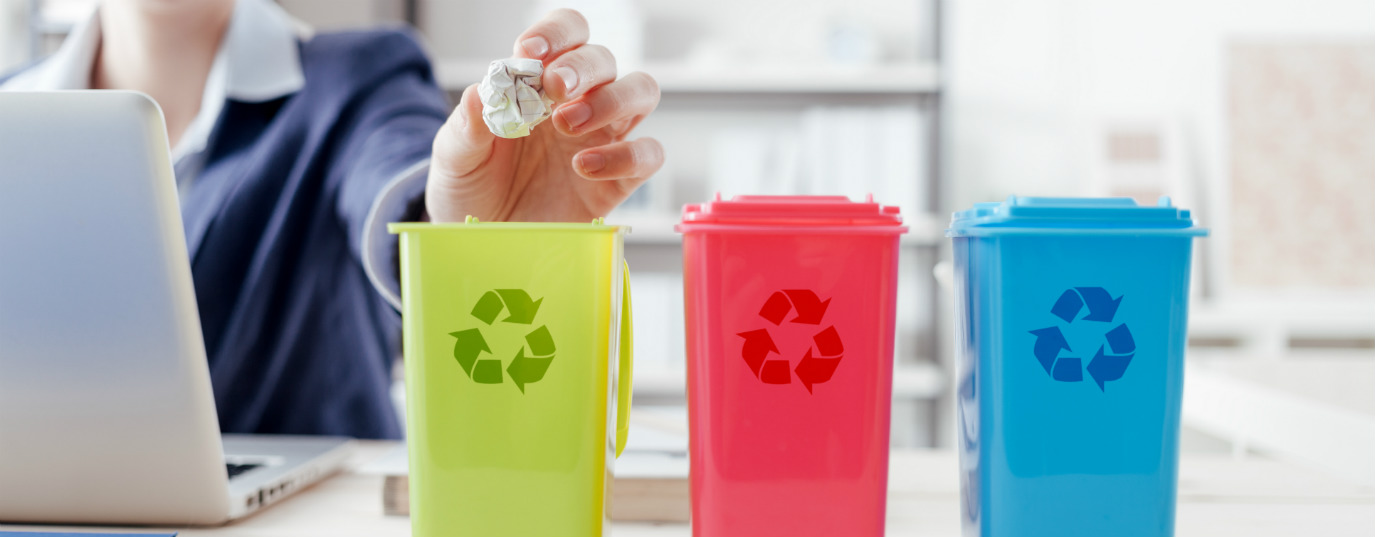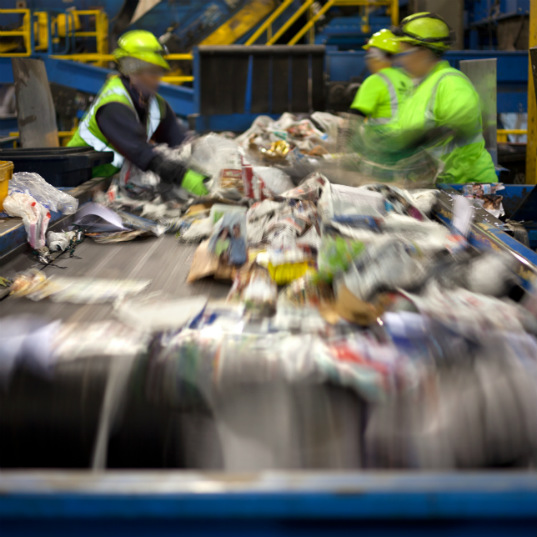Debunking the myths about recycling
These are some of the most widespread lies about the practice of recycling
As some people continue to circulate myths denying human causes of climate change, there are others who claim recycling waste is of no use and can even be counter-productive.
Like other fake news, this is simple to debunk using facts. Recycling is easily justified and has countless environmental, social and economic benefits. This is why the United Nations’ Sustainable Development Goal 12 seeks to ensure responsible consumption and production, aiming to, “by 2030, substantially reduce waste generation through prevention, reduction, recycling, and reuse”. As such, we now have more local authority recycling regulations, which include imposing fines on those who fail to practice recycling or don’t recycle correctly.
Below, we debunk some of the more widely circulated, false, myths:
All the rubbish gets mixed up in the garbage trucks
Generally, there are different kinds of trucks that independently collect waste. When one vehicle accepts all the containers for recycling, it will be one of the most modern vehicles around, with separated compartments inside so each kind of waste is isolated from the others.
In this way, all waste separated in homes is collected and sorted by the trucks for later treatment.
Everything gets lumped together at the recycling plant
It is impossible that, once they have been collected, different kinds of waste are mixed at the recycling plant, basically because such facilities have to be separate and only the waste to be treated by each plant is delivered there.
Although it’s possible that part of the waste arrives with impurities coming from other kinds of waste, these are separated manually and automatically for correct processing.
Separate taxes for street cleaning, garbage collection and recycling
These are different services. The cost of recycling each kind of waste is not normally financed by the garbage collection tax or assumed by urban cleaning departments. Such services concentrate on collecting organic waste, on the one hand, and keeping public areas clean on the other. It is the responsibility of citizens to recycle, a de facto obligation to safeguard the environment.
Likewise, companies selling packaged products assume the economic responsibility for recycling, in cooperation with local authorities and the public.
Recycling does more damage to the environment than manufacturing a new product
Damage to the environment is much greater if you have to produce a material completely from zero than if you establish a recycling system, since recycling saves on water, energy and raw materials. Manufacturing a can, for example, from recycled metal reduces energy consumption by 95%. In the case of paper, recycling represents savings of 62% in energy and 86% in water.
As opposed to the linear consumption model, which generates continuous resource expenditure, the circular economy saves on production processes through re-use and recycling, reducing the use of energy and raw materials.
Waste prevention, ecological design, reuse and other measures represent savings equivalent to 8% of EU companies’ annual revenues, according to the European Commission. And this, even though there persists a series of obstacles to recycling, such as overly-restrictive or complex policies. Greater knowledge is needed, and a mentality of ‘reduce, reuse and recycle’ should be promoted, among consumers, businesses and governments.

Recycled products are worse
It is also common to hear that a product made from recycled materials is of inferior quality than a product made from new materials. This is a false belief, since glass, aluminum and plastics can all be recycled and reused continuously without losing their properties.
In the case of paper and cardboard, a high-quality paste is generated and used to create new products such as shoeboxes, books and newspapers.
Recycling means job losses
In fact, the exact opposite occurs. In countries where recycling has been institutionalized as an extended practice, the need for recycling plants has in some cases multiplied employment in the sector by a factor of 10.
The European Commission estimates that more than 400,000 job vacancies would be created and 72 billion euros saved by EU countries if waste were managed correctly, not to mention the benefit that would logically be transmitted to the environment.
Those are the most common myths circulating as to why we should forget about recycling. Remember, though, that, when following the 3Rs rule, recycling is the final stage. It comes after consumption has been reduced to the necessary minimum, and everything that has a second use has been reused.
Sources: ABC, eldiario.es, Ecoembes, Recíclame, Entrepeneur, Hazte Eco and El País.







